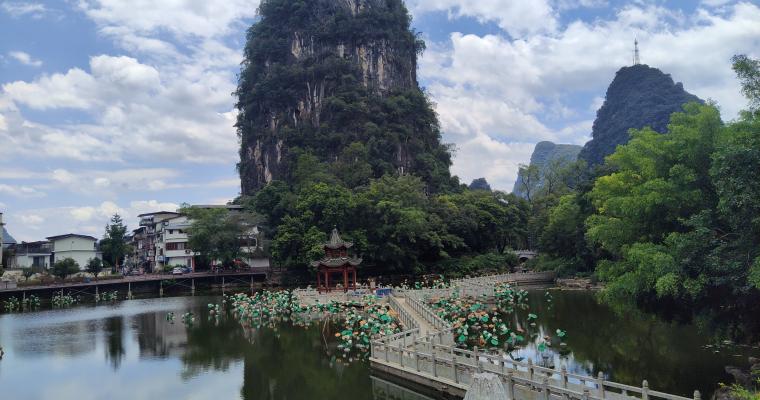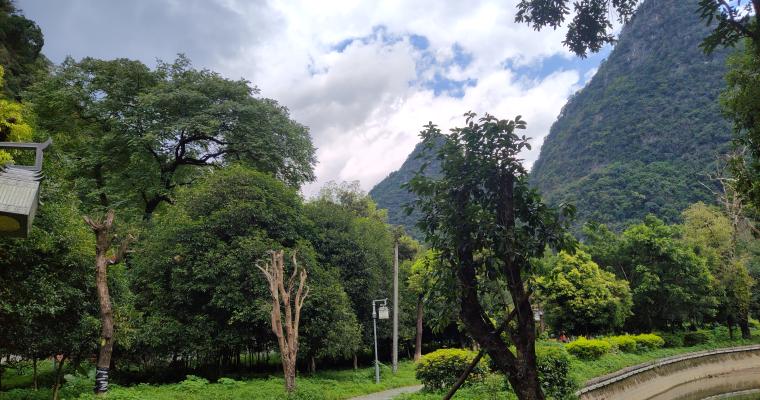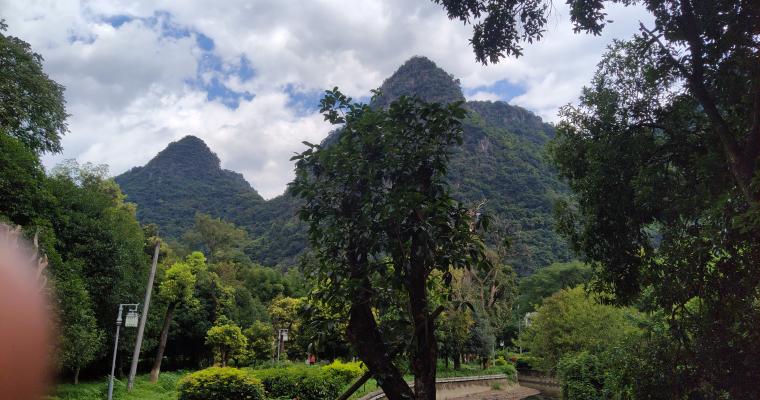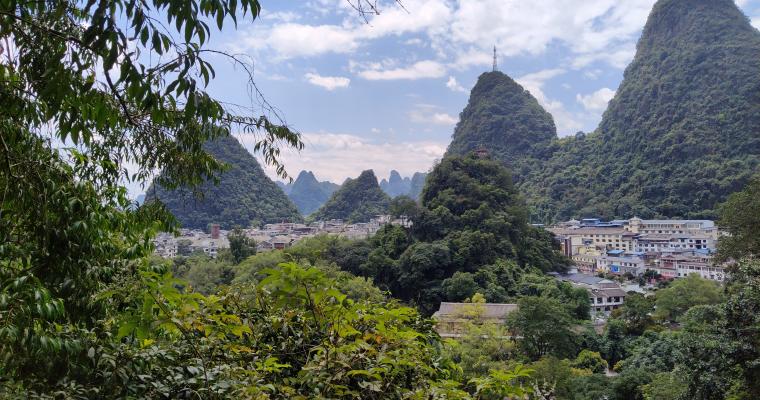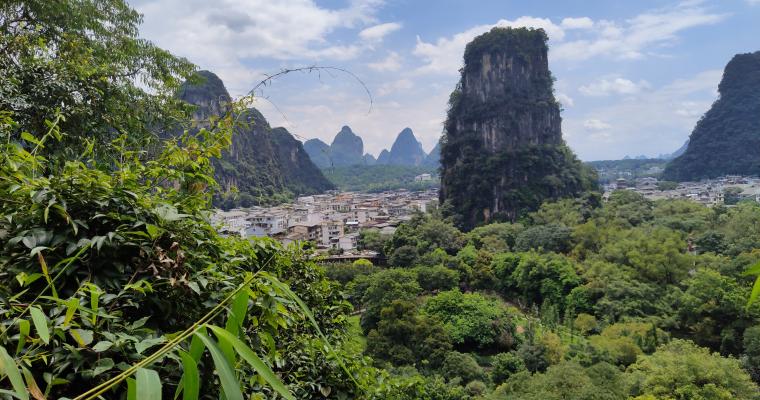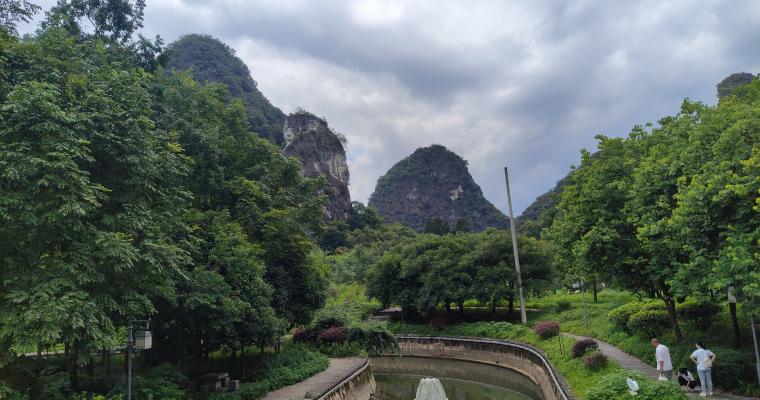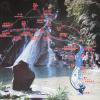Yangshuo Park, nestled in the heart of Yangshuo County, is a serene oasis that offers a glimpse into the traditional Chinese park culture intertwined with the stunning natural beauty of the region. Established in 1915, the park is a harmonious blend of artificial structures and natural scenery, featuring the iconic karst mountains that are synonymous with the area's landscape. Visitors can enjoy a variety of activities, from peaceful strolls along the park's pathways to engaging in the local custom of playing Chinese chess amidst the backdrop of lush greenery and striking rock formations. The park's proximity to the town center makes it a popular spot for both locals and tourists seeking respite from the bustling streets. Early mornings in the park are particularly enchanting, as one can witness the elderly practicing the fluid movements of tai chi, a testament to the park's role as a community hub for relaxation and social interaction. The park also serves as a starting point for exploring the surrounding countryside, where the true essence of Yangshuo's beauty unfolds through its rivers, rice paddies, and traditional villages. Whether it's cycling through the rural landscape, bamboo rafting on the Yulong River, or simply soaking in the panoramic views, Yangshuo Park is a gateway to the myriad of experiences that define the charm of this unique corner of China. For those looking to delve deeper into the local culture, the park vicinity offers opportunities to participate in cooking classes, learn about farming practices, or even join in a game of mahjong with the residents. As the sun sets, the park transforms into a tranquil haven, where the silhouettes of the karst peaks stand tall against the twilight sky, offering a moment of reflection and connection with nature. Yangshuo Park is not just a place to visit; it's an experience that captures the soul of the region, inviting travelers to immerse themselves in the rhythm of local life and the timeless beauty of the landscape. It's a reminder of the harmonious coexistence between man and nature, and a celebration of the cultural heritage that continues to thrive in the heart of Guangxi.
Activities near Yangshuo Park
The DS West Street Hotel in Yangshuo is a popular choice for travelers seeking a blend of value, comfort, and
Yangshuo West Street, also known as 'Foreigners' Street', is a vibrant and historic thoroughfare in the heart of Yangshuo, China
Ride an electric powered raft on the Lijiang river in Yangshou
Embarking on a bamboo raft trip down the Yulong River is an enchanting experience that offers a serene escape into
Guilin’s Crown Cave: A Hidden Underground Wonderland
Deep in the heart of Guilin’s breathtaking karst landscape lies Crown Cave
Pagination
- Page 1
- Next page ››

